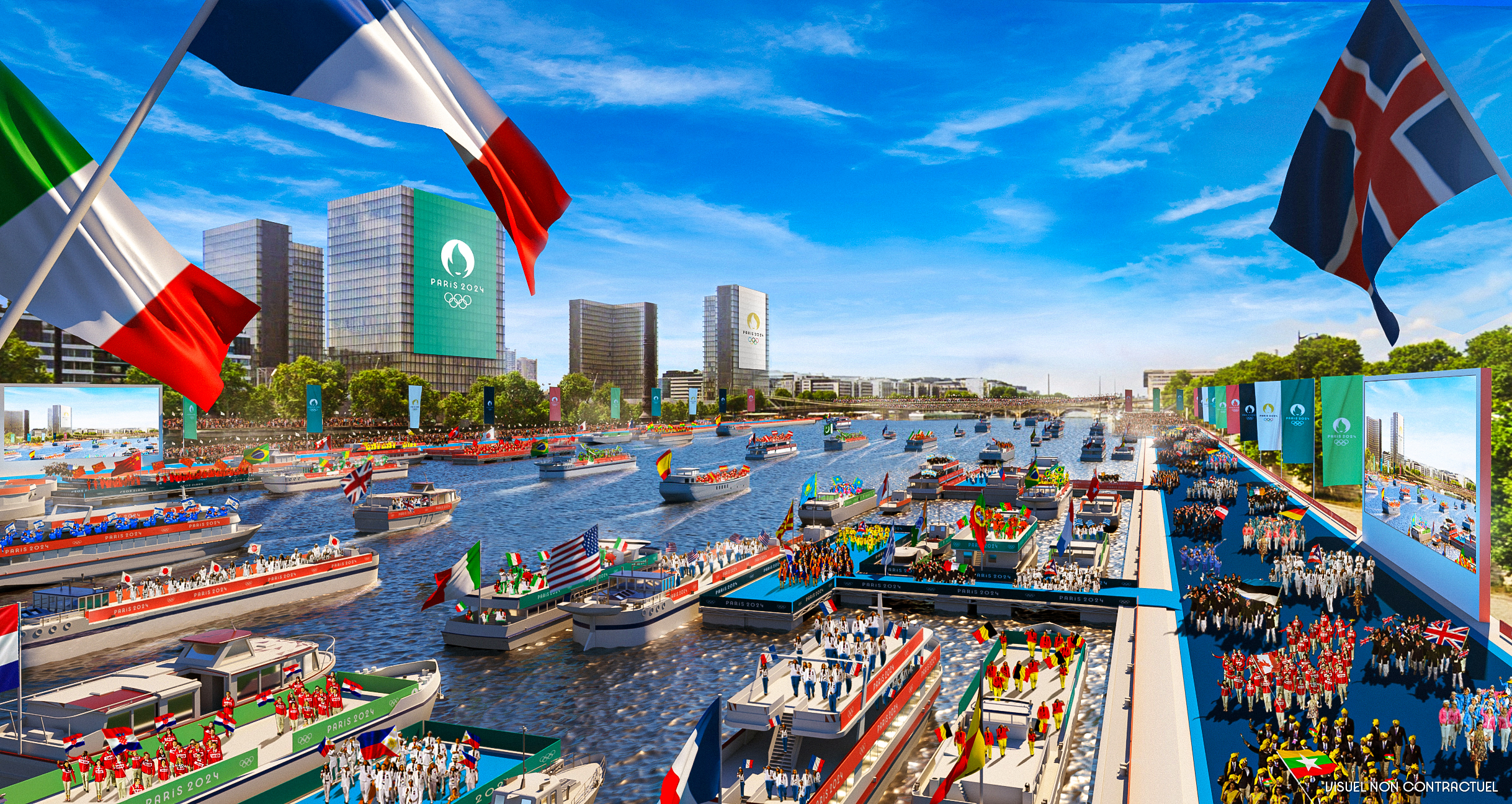
The increasingly frayed relationship between the International Olympic Committee and Russia continued to play out into the open on Tuesday after the IOC urged sports and political leaders not to take part in a Russian-organized Friendship Games due to launch weeks after the 2024 Olympic Summer Games in Paris, then announced any neutral athletes from Russia or Belarus will not participate in the Opening Ceremony.
James Macleod, IOC head of National Olympic Committee relations, said the projection is that 36 Russians and 22 Belarusians will be allowed to compete in Paris. The maximum projection is 55 Russians and 22 Belarusian participants compared to the 2020 Games in Tokyo in which 330 Russians and 104 Belarusians participated.
An “opportunity will be provided to (neutral athletes) to experience the event,” Macleod added, similar to when athletes from the former Yugoslavia did not march in the 1992 Opening Ceremony in Barcelona. A decision on if those athletes will participate in the Closing Ceremony will be made at a later date. The International Paralympic Committee already has said Russian and Belarusian athletes participating in the Paralympics would not march in their Opening Ceremony.
Sponsored Content
The IOC has for months carefully laid the groundwork for Russian and Belarussian athletes to participate in the Games but frustration with Russian government and sports officials has become more public after Russian Foreign Minister Sergei Lavrov accused Bach in early March of a “betrayal of the ideals of the Olympic movement.” Along with Lavrov’s comments, a document was released detailing attempts by lawyers acting for Russia at the Court of Arbitration for Sport to draw comparisons with the Israel-Palestinian conflict and other border disputes in a failed legal case against the IOC was published.
“The Russian government apparently is ignoring the fact they have forced us (into) action,” Bach said earlier this month. “It is their invasion and in particular it is their annexation of parts of Ukraine. … What is also remarkable is that this aggressivity is coming from the very same government that was behind the scandalous manipulation of the anti-doping system before and during and even after (the 2014 Winter Olympics in Sochi).”
Russia is excluded from all team sports in Paris because of its military invasion of Ukraine in February 2022. individual athletes must pass vetting by their sport’s governing body and IOC to get neutral status to compete without their national symbols of flag, anthem and uniforms in red, white and blue.
In a fit of pique at the IOC’s sanctions, Russian President Vladimir Putin decreed last year to start organizing summer and winter events under the banner of the Friendship Games, with a prize fund reported by Russia media totaling $50 million. The first games are scheduled in Moscow and Yekaterinburg in September within weeks of the August 11 Closing Ceremony in Paris.
The IOC Executive Board statement called the proposed event “a cynical attempt by the Russian Federation” to bring politics into sports. … The IOC strongly urges all stakeholders of the Olympic movement and all governments to reject any participation in, and support of, any initiative that intends to fully politicize international sport.”
“We don’t see that as a rival to the Olympic Games,” Macleod said, adding a potential suspension of athletes who participate in the event “will be something that will have to be looked at in the future.”
2032 Venue Plans Changing
Organizers for the 2032 Olympic and Paralympic Summer Games in Brisbane have changed plans to demolish, then rebuild, the iconic Gabba stadium that would have been the Games’ centerpiece, while also rejecting a review panel’s recommendation for a new stadium in city parklands.
Queensland state’s Premier Steven Miles announced Monday an upgrade an existing rugby stadium close to downtown Brisbane to host the Opening and Closing Ceremonies after an independent review of Olympic planning in January. The review’s central feature is construction of a new 55,000-seat stadium at Victoria Park at a cost of $2.23 billion instead of redeveloping the Gabba.
Miles’ government also plans to upgrade another existing stadium in the city’s south to host track and field. The stadium, now known as the Queensland Sport and Athletics Center, was the main venue for the 1982 Commonwealth Games. Organizers still need to finalize where an indoor stadium will be built to host swimming and later be converted into an indoor arena and concert venue.
Under the original bid plans, the Queensland state government unveiled a $1.7 billion Gabba rebuild that would have forced cricket and the Brisbane Lions Australian Rules Football team to relocate from 2025 to 2030. Critics pointed to escalating costs after the plan’s price tag increased to almost three times the original estimate in the Olympic bid.
Brisbane won the 2032 hosting rights in July 2021, when the bid was led by state Premier Annastacia Palaszczuk. The long-standing premier quit in December amid falling opinion polls and was replaced by Miles.












 Copyright © 2025 by Northstar Travel Media LLC. All Rights Reserved. 301 Route 17 N, Suite 1150, Rutherford, NJ 07070 USA | Telephone: (201) 902-2000
Copyright © 2025 by Northstar Travel Media LLC. All Rights Reserved. 301 Route 17 N, Suite 1150, Rutherford, NJ 07070 USA | Telephone: (201) 902-2000